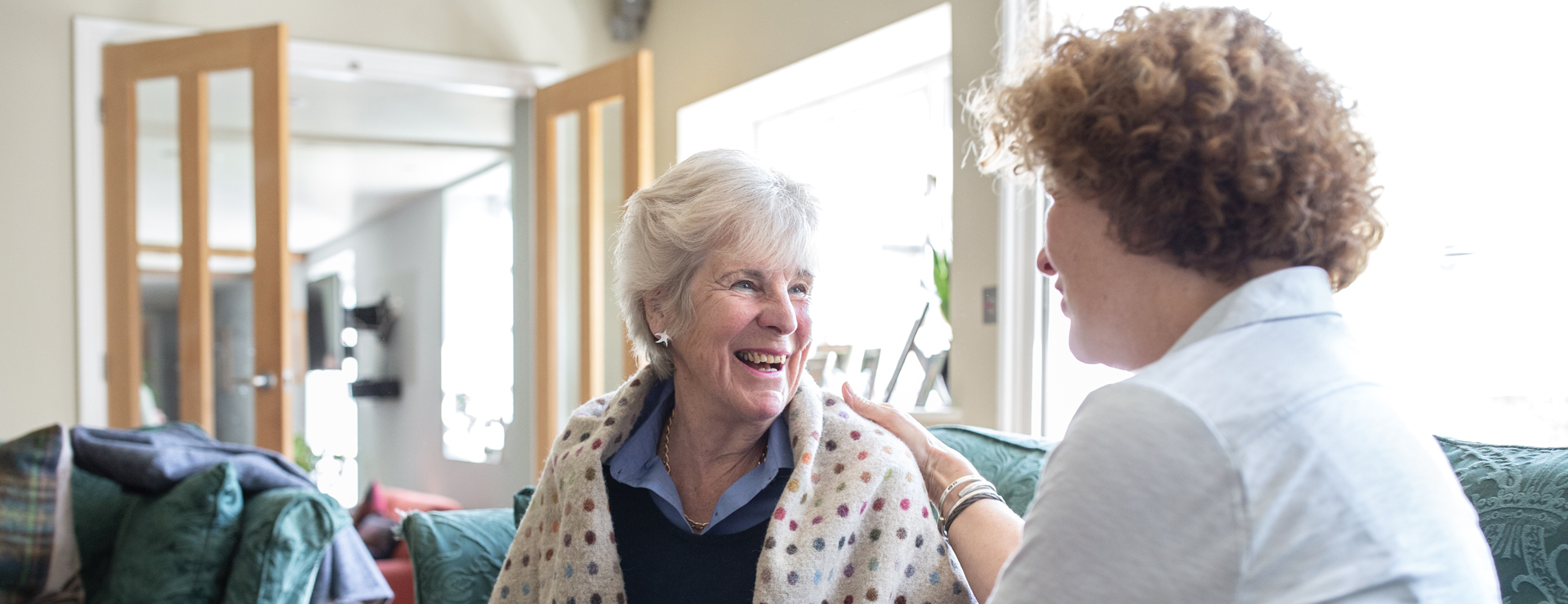While there is currently no cure for dementia, there are treatments available that can help manage symptoms and improve quality of life. While these treatments cannot eliminate the disease, they can provide much-needed relief and support for the person living with dementia and their families.
Here we explore various treatment options for dementia, including medication, care strategies, talking therapy, lifestyle changes, and alternative therapies. Whether you are a caregiver or family member, understanding these treatments can empower you to provide the best possible support.
Dementia Medication
Medication can play a role in managing specific symptoms associated with dementia, such as thinking and memory. Most of these medicines are used to treat Alzheimer’s disease, the most common form of dementia.
However, medication shouldn’t be used in isolation and instead used in conjunction with other therapies such as talking therapy, life story work and supporting activities of daily living. In combination, these can enable someone to live well with dementia.
Person-centred care
Care plays a crucial role in supporting people living with dementia. Person-centred care is a positive approach to care that focuses on understanding each individual’s unique needs, preferences, and values. By placing the individual at the heart of all care decisions, person-centred care helps people feel valued, respected and heard.
Person-centred care involves creating a supportive environment, fostering trust, and respecting each individual’s autonomy. Studies have shown that person-centred care can improve emotional well-being, reduces distress, and promotes a sense of purpose and fulfilment for people with dementia.
Talking therapy
Talking therapy can be highly beneficial, especially for people in the early to middle stages of dementia. It provides a supportive space for them to express any worries, emotions, or concerns related to their diagnosis.
Some people living with dementia hesitate to open up with family and friends about their diagnosis or they may struggle to clearly articulate their thoughts and fears. In such cases, talking to a professional can offer them an opportunity to freely share their experiences and receive the understanding and guidance they need.
Lifestyle changes
Dementia is often accompanied by symptoms of anxiety and depression. Healthy lifestyle changes can not only promote brain health and reduce cognitive decline, but they can also have a positive impact on mood and overall well-being.
Here are some key lifestyle changes that can positively impact people with dementia. Remember that you should always consult with healthcare professionals or dementia care experts to develop an individualised plan that suits the specific needs and abilities of the person with dementia.
- Staying active: Regular physical activity has been shown to have numerous benefits for people with dementia. Even simple activities like walking, gardening, or gentle exercises can help improve mood, maintain mobility, and boost self-esteem.
- Eating well: A nutritious diet is important for both physical and mental health. Consuming a balanced diet that includes plenty of fruits, vegetables, whole grains, lean proteins, and healthy fats can support brain health and improve mood.
- Getting enough sleep: Getting enough sleep is important for everyone, particularly those living with dementia. Sleep disturbances can eventually take a toll on both the person with dementia and their caregivers. Establishing a bedtime routine, getting plenty of natural sunlight and creating a comfortable sleep environment can all promote a good night’s sleep.
- Social engagement: Maintaining social connections and participating in social activities can stimulate the mind and help reduce feelings of isolation. Many activity groups bring people with dementia together for singing, dancing, art classes and much more.
- Mental stimulation: Engaging in mentally stimulating activities like reading, puzzles, or learning new skills, can help keep the mind active and slow down cognitive decline.
- Stress management: Managing stress through relaxation techniques, such as deep breathing exercises, mindfulness, or engaging in enjoyable hobbies, can help reduce anxiety and promote relaxation.
Alternative Therapies for Dementia
When it comes to managing dementia symptoms, alternative therapies that do not involve medications can offer additional support and benefits. Alternative therapies provide cognitive stimulation, foster social interaction, inspire positive memories, and improve quality of life.
Remember to work with healthcare professionals, caregivers, and other specialists experienced in these therapies to ensure they are implemented appropriately and tailored to your loved one’s needs and preferences.
Cognitive Stimulation Therapy (CST)
Cognitive Stimulation Therapy involves structured group activities that stimulate thinking, memory, and social interaction. These activities can include discussions, puzzles, and reminiscence exercises. CST has been shown to have positive benefits for people with dementia including improving cognitive abilities and boosting self-esteem.
Cognitive Rehabilitation
Cognitive rehabilitation focuses on working with a healthcare professional, like an Occupational Therapist, to achieve a specific goal. The goal could be anything from using a mobile phone, cooking a favourite meal or any other everyday activity. This form of therapy is particularly helpful in the early stages of dementia, as it can improve independence and make managing everyday tasks easier.
Reminiscence and Life Story Work
Reminiscence therapy involves recalling and sharing past experiences, often with the help of photographs, music, or other sensory cues. Life story work goes a step further by creating a comprehensive life history of the person, which can provide a meaningful and engaging way for people with dementia to connect with their memories and experiences.
Reality Orientation Training
Reality orientation training involves providing people with dementia with cues and reminders about basic information such as their name, current date, and time. Some individuals find this helpful as it can enhance their orientation and sense of time, reducing confusion and anxiety.
However, it is important to recognise that reality orientation training may not be suitable for everyone. Some individuals find it overwhelming or patronising, and if it is not effective or well-received, it may be better to discontinue its use.
Dementia Care in the Comfort of Home
At Oxford Aunts, we understand the challenges faced by people living with dementia and their families. Our high-quality live-in dementia care provides compassionate and personalised support in the comfort of home.
Whether it’s medication management, engaging activities, or assistance with daily living, our experienced carers are here to enhance the quality of life for your loved ones.
Contact Oxford Aunts today to find out how our dedicated team can provide the support and care your loved ones deserve in the familiar surroundings of home.
Get In Touch With Us About Your Dementia Care Needs
Our expert care advisors are here to help you understand the options available to you.





